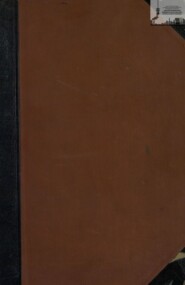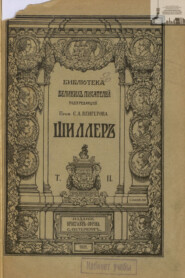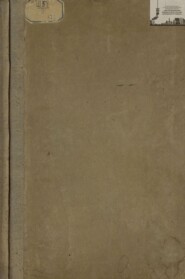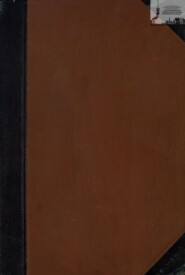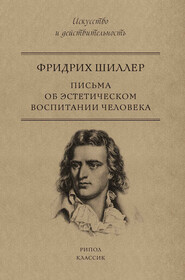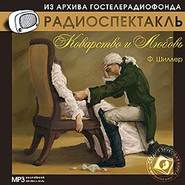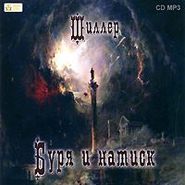По всем вопросам обращайтесь на: info@litportal.ru
(©) 2003-2025.
✖
Mary Stuart
Автор
Год написания книги
2017
Настройки чтения
Размер шрифта
Высота строк
Поля
What wish they still, my lord? Speak.
BURLEIGH
They demand
The Stuart's head. If to thy people thou
Wouldst now secure the precious boon of freedom,
And the fair light of truth so dearly won,
Then she must die; if we are not to live
In endless terror for thy precious life
The enemy must fall; for well thou know'st
That all thy Britons are not true alike;
Romish idolatry has still its friends
In secret, in this island, who foment
The hatred of our enemies. Their hearts
All turn toward this Stuart; they are leagued
With the two plotting brothers of Lorrain,
The foes inveterate of thy house and name.
'Gainst thee this raging faction hath declared
A war of desolation, which they wage
With the deceitful instruments of hell.
At Rheims, the cardinal archbishop's see,
There is the arsenal from which they dart
These lightnings; there the school of regicide;
Thence, in a thousand shapes disguised, are sent
Their secret missionaries to this isle;
Their bold and daring zealots; for from thence
Have we not seen the third assassin come?
And inexhausted is the direful breed
Of secret enemies in this abyss.
While in her castle sits at Fotheringay,
The Ate[1 - The picture of Ate, the goddess of mischief, we are acquaintedwith from Homer, II. v. 91, 130. I. 501. She is a daughter ofJupiter, and eager to prejudice every one, even the immortal gods.She counteracted Jupiter himself, on which account he seized her byher beautiful hair, and hurled her from heaven to the earth, whereshe now, striding over the heads of men, excites them to evil inorder to involve them in calamity. – HERDER.Shakspeare has, in Julius Caesar, made a fine use of this image: – "And Caesar's spirit ranging for revengewith Ate by his side, come hot from hell,Shall in these confines, with a monarch's voice,Cry havoc, and let slip the dogs of war."I need not point out to the reader the beautiful propriety ofintroducing the evil spirit on this occasion. – TRANSLATOR.] of this everlasting war,
Who, with the torch of love, spreads flames around;
For her who sheds delusive hopes on all,
Youth dedicates itself to certain death;
To set her free is the pretence – the aim
Is to establish her upon the throne.
For this accursed House of Guise denies
Thy sacred right; and in their mouths thou art
A robber of the throne, whom chance has crowned.
By them this thoughtless woman was deluded,
Proudly to style herself the Queen of England;
No peace can be with her, and with her house;
[Their hatred is too bloody, and their crimes
Too great;] thou must resolve to strike, or suffer —
Her life is death to thee, her death thy life.
ELIZABETH
My lord, you bear a melancholy office;
I know the purity which guides your zeal,
The solid wisdom which informs your speech;
And yet I hate this wisdom, when it calls
For blood, I hate it in my inmost soul.
Think of a milder counsel – Good my Lord
Of Shrewsbury, we crave your judgment here.
TALBOT
[Desire you but to know, most gracious queen,
What is for your advantage, I can add
Nothing to what my lord high-treasurer
Has urged; then, for your welfare, let the sentence
Be now confirmed – this much is proved already:
There is no surer method to avert
The danger from your head and from the state.
Should you in this reject our true advice,
You can dismiss your council. We are placed
Here as your counsellors, but to consult
The welfare of this land, and with our knowledge
And our experience we are bound to serve you!
But in what's good and just, most gracious queen,
You have no need of counsellors, your conscience
Knows it full well, and it is written there.
Nay, it were overstepping our commission
If we attempted to instruct you in it.
ELIZABETH
Yet speak, my worthy Lord of Shrewsbury,
'Tis not our understanding fails alone,
Our heart too feels it wants some sage advice.]
TALBOT
Well did you praise the upright zeal which fires
Lord Burleigh's loyal breast; my bosom, too,
Although my tongue be not so eloquent,
Beats with no weaker, no less faithful pulse.
Long may you live, my queen, to be the joy
Of your delighted people, to prolong
Peace and its envied blessings in this realm.
Ne'er hath this isle beheld such happy days
Since it was governed by its native kings.
Oh, let it never buy its happiness
With its good name; at least, may Talbot's eyes
Be closed in death e'er this shall come to pass.






